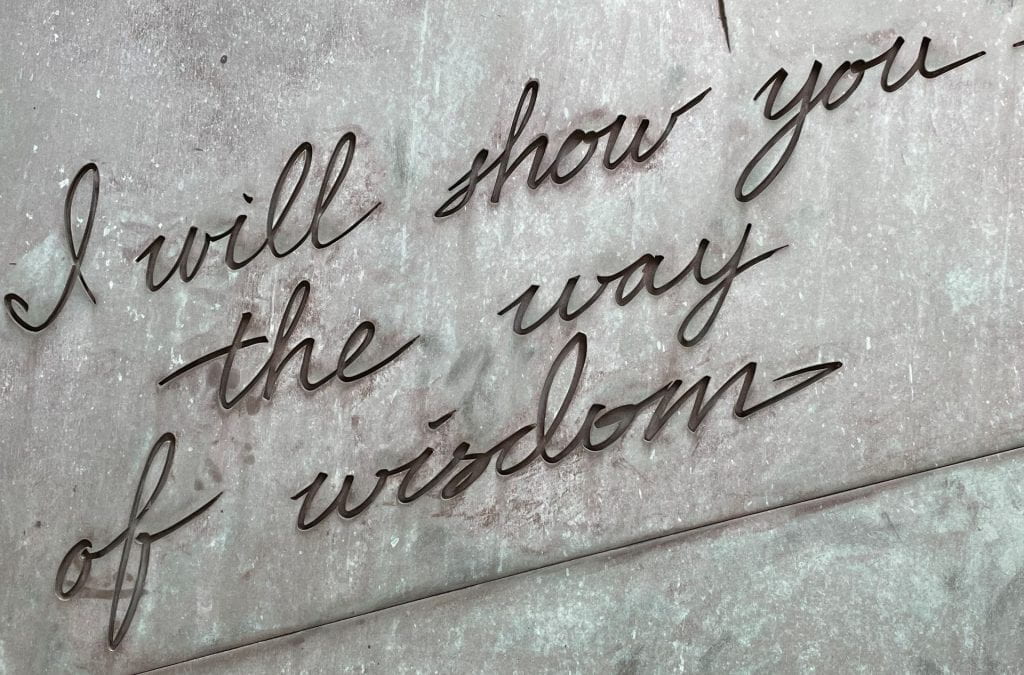In the coming weeks, our DePaul community will continue to engage in the current strategic design process and consider the short and long-term future of our beloved institution. This is likely to include seeing, hearing about, and sharing together in many challenging conversations as we manage the implications of the recent announcement about the budget challenges and the headwinds the university is facing.
At this time in our history, it is as important as ever to center our thinking and collective conversations about budgets, departments, programs, and services around our DePaul University mission. In the light of this mission and amid our current budgetary tensions and constraints, as well as our aspirational hopes and dreams, we are challenged to thoughtfully discern and intentionally decide what is and will remain fundamental to who we are and who we believe we are called to become as a Catholic, Vincentian institution of higher education. This call is perhaps never more important than in times of political and economic adversity. What must be done? We must integrate conscious attention to equity, sustainability and community into our design and decision-making processes.
We share these thoughts as an interdisciplinary group of faculty members across all ten colleges who have spent the last year as part of the pilot Vincentian Pedagogy Project. Together, we have collectively learned, reflected upon, and discussed the ways in which our Vincentian mission might inform and inspire our practice of teaching.
We have concluded that how we enact mission in our classrooms needs to remain central to our collective conversations. While there are some things that we cannot control at the university, the work of teaching and learning is uniquely ours. What we do in the classroom, how we think about educational outcomes, and how we shape educational processes with our students lie at the heart of who we are and what we do as an institution of higher learning. Our pedagogical commitments are a concrete reflection of how we understand and practice our Vincentian mission.
In the pedagogy group’s shared reflections over the past year, we have become more conscious of how our teaching most commonly reflects what we value and how systems produce the outcomes that they have been designed to produce. Therefore, we believe it is particularly important for us to ask: what is the institutional and educational vision toward which we are working? Who do we, as educators, need to become if we are to achieve this vision? What must we do in the classroom and in our work with students to achieve this vision?
How we think about the education we deliver matters. Becoming more conscious and intentional about the way our systems and educational processes are structured—both visibly and invisibly, whether consciously or unconsciously—is an essential part of the process of effective design and shapes how decisions are made. If our mission is to have integrity, the means must reflect the end that we seek. In other words, our pedagogy must reflect the educational outcomes to which we aspire.
After four lengthy and in-depth conversations together this academic year, our shared wisdom about what a Vincentian pedagogy entails has moved us to the common recognition that most fundamentally our teaching is and must remain motivated by a mission far bigger than our own individual disciplines. As people inspired by the intuition and spirit of Vincent de Paul, we advocate for delivering an education not only focused on developing professional competence, but also the formation of people with hearts for those in need. We must develop their skill and capacity to work collaboratively with a wide diversity of others toward a more just, equitable and sustainable society and planet. In short, we teach with and for social and environmental thriving.
Significantly, recent major international conversations about education, such as those led by the Catholic Church and the United Nations, have moved more and more toward a focus on equity and sustainability as central to the work of education. They suggest that through education we build together the future of our humanity. This means cultivating a spirit of community, solidarity, compassion, and care for one another and a deep appreciation for the dignity of all people, particularly those who are marginalized and abandoned.
An important part of what is needed to achieve such a vision of education both globally and locally is nurturing the habit of living and learning in a communal context. In the current age, therefore, our pedagogy must involve inviting the wisdom, perspective, and participation of those we seek to teach, as well as fostering critical self-reflection and self-examination in our students. Doing so involves a certain degree of vulnerability, including the willingness and ability of teachers to model what they teach. This involves being self-aware and reflecting on the ways in which our beliefs and practices, our use of power, and the responsibilities entrusted to us either help or hurt movement toward our stated educational vision and goals.
What does all of this have to do with the current institutional context?
First, we hope that the decisions of members across the university community, including those of our institutional leaders, will be guided by clearly stated mission-related values. Transparent communication about the vision and direction in which we are seeking to move benefits all. A high level of self-awareness and self-scrutiny is needed if we are to hold true to our values and not replicate the harms so prevalent in the patterns present in our broader society. Again, the means must reflect the ends to which we aspire.
Second, sound decisions most often involve the collective wisdom of the broader community. When we move and decide independently of consideration for the larger whole, the community to which we belong and seek to serve, we are more likely to forget who we are. The community holds us accountable to what we most value. We hope to see this appreciation of communal wisdom evident through the participation of a diverse community of DePaul faculty, staff, and students in the Designing DePaul process.
Third, we must continue to work intentionally to develop the systems and to cultivate with care the kind of community-of-persons that will most help us achieve the mission to which we aspire. Communities are not built by happenstance, but through careful attention and care for each other.
DePaul University, with our distinctive Catholic and Vincentian mission, is well positioned to contribute meaningfully to a new humanity through our approaches to pedagogy and leadership. Our mission calls us to model and support the development of competent and skilled teachers and leaders with a heart. By intention, the education we provide and the leadership we exhibit should clearly reveal our commitment and desire to work together with others in our rapidly changing, complex, and diverse world and toward the goal of a more just, equitable, and sustainable human community and planet. In these times, and especially in the midst of our current challenges, let us move with intention toward this hope in the service of our mission.
Reflection by: The Vincentian Pedagogy Project Pilot Group
Christopher Tirres, College of Liberal Arts and Social Sciences, co-lead faculty facilitator
Jacki Kelly-McHale, School of Music, co-lead faculty facilitator
Sarah Brown, Center for Teaching and Learning
Doug Bruce, College of Science and Health
Susanne Dumbleton, School of Continuing and Professional Studies
Elissa Foster, College of Communication
Sharon Guan, Center for Teaching and Learning
Horace Hall, College of Education
Jaclyn Jensen, College of Business
Mark Laboe, Associate VP, Mission and Ministry
Sheryl Overmyer, College of Liberal Arts and Social Sciences
Coya Paz Brownrigg, Theatre School
Mark Potosnak, College of Science and Health
Howard Rosing, Steans Center
Ann Russo, College of Liberal Arts and Social Sciences
Allison Tirres, College of Law
Allen Turner, College of Computing and Digital Media
Chris Worthman, College of Education


